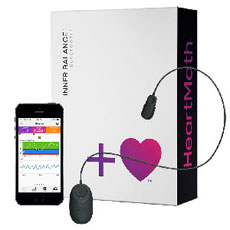Why Are So Many People Gluten Sensitive These Days?
It seems like there are so many individuals dealing with gluten sensitivity or Celiac disease today. Why is this happening and how do you find out if you are dealing with this issue yourself?
My goal for you is to find the answers to some of these questions surrounding gluten and to empower you to make dietary choices that are healing and nourishing to your specific constitution and nutritional needs.
What is Gluten?
Gluten is a family of proteins found in grains, such as; wheat, rye, spelt, barley, durum, semolina, farina, farro, graham, kamut, einkorn, triticale, emmer, and oats (that have been manufactured in a facility that processes other gluten grains).
Gluten is a mixture of hundreds of proteins within the same family. The 2 main proteins in gluten are glutenin and gliadin, with gliadin causing most of the gluten sensitivity issues. Glutenin is the protein responsible for making dough more elastic and gliadin gives bread the ability to rise during baking.
Gluten can be found and hidden in many products you may already be aware of and some you may not suspect, such as;
Breads, pastas, cereals, sauces, candy bars, lunch meats (deli items), flours, soups, bakery items, beer, malt, brewer’s yeast, soy sauce, some French fries and other fried foods (breading), some personal hygiene products, can also be hidden in foods as an additive (mostly processed foods), bouillon cubes, candy, gravies and sauces, imitation fish and imitation bacon, matzo, Panko (bread crumbs), self- basting turkeys, natural and artificial flavorings, emulsifiers, stabilizers, caramel coloring, hydrolyzed vegetable protein (HVP), textured vegetable protein (TVP), hydrolyzed plant proteins (HPP), cereal extracts, and dextrins.
What is Celiac Disease?
Celiac disease is a consequence of an immunological reaction to gluten and a disease triggered by genetics and environment. Celiac disease has dramatically increased over the last 50 years by 5 times in the United States alone. There are 1/133 people in the US with Celiac disease. For every 1 case diagnosed, there are 8 undiagnosed cases.
What is Gluten Sensitivity?
Gluten Sensitivity is also an immunological reaction to gluten, and a state of genetics as well. It is an immune response. Gluten sensitivity is not a disease like Celiac, but if ignored, it can trigger Celiac disease and/or other diseases.
What is Gluten Intolerance?
Gluten intolerance is not an immune response like Celiac and gluten sensitivity. It is solely the inability to digest gluten. These symptoms can show up as bloating, gas, indigestion, constipation, diarrhea, etc. Gluten intolerance symptoms can appear in a similar fashion as gluten sensitivity but it is a non-immune response.
Symptoms of Celiac Disease and Gluten Sensitivity
Extreme weight loss, diarrhea, stomach/abdominal pain, vomiting, bloating, gas
Other symptoms or atypical symptoms/ health issues that could be related to Celiac and Gluten Sensitivity
#1 symptom is: Mouth Ulcers, Dermatitis Herpetiformis (a bumpy, itchy rash that is common in people with Celiac- also known as Duhring’s disease- it can cause blisters that look like herpes, but the condition doesn’t come from the herpes virus, it’s linked to gluten sensitivity), anemia (various forms), autoimmune disorders (all individuals that have autoimmune conditions should be screened for Celiac/gluten sensitivity), osteoporosis, neurological disorders, epilepsy with cerebral calcification, neuropathy, cerebral ataxia, chorea, infertility, non-alcoholic fatty liver disease, abnormal liver function tests (AST and ALT), skin disorders, association with Type 1 Diabetes, elevated CRP (C-Reactive Protein elevation with no known cause), Vitamin D malabsorption, unexplained depression, schizophrenia, immune dysfunction, nutrient deficiencies, enamel wasting, low blood sugar, alopecia, fatigue, body/muscle aches, headaches/migraines, and family history of Celiac disease
Diagnostic Tools in Gluten Sensitivity
*Genetics are typically involved in celiac disease and gluten sensitivity. The HLA, DQ, DR, and other genes are usually involved. Genetic testing has shown to be the most accurate for identifying a potential reaction to gluten.
*Blood tests are very non-specific and have a high tendency towards false negative results for gluten sensitivity. Do not assume that if your blood tests come back negative that you are free from a gluten sensitivity.
*There is a specific blood test from Cyrex Labs that has shown to be very sensitive and more accurate for celiac/gluten sensitivity. It is called IgA Gluten Sensitivity/Celiac Disease Test. You can read more about it here:
http://www.advancedglutentest.com/
*The only true diagnostic test for Celiac is a biopsy of the lining of the small intestine. Unfortunately, this is not always an accurate representation because it is not able to show the entire intestine or extra intestinal damage.
*Stool tests can be more accurate than blood tests but can also give false negative results too.
Why are so Many Individuals Gluten Sensitive?
There are many reasons why this is happening today:
1. GMO’s (genetically modified organisms) in gluten containing grains and other foods are causing leaky gut syndrome making individuals much more susceptible to food allergies and sensitivities. Genetically modified crops are sprayed with large amounts of glyphosate. Glyphosate is also known as Round Up and is a broad-spectrum systemic herbicide and crop desiccant. When the insects and pests eat the crops that glyphosate has been sprayed on, it makes their stomachs explode. What kind of ramifications do these GMO foods have on our health? Here is a good article if you would like further information:
2. Emotional/Physical/ Environmental Stressors (chemicals, medications, stress, infections, heavy metal toxicity)
3. Lack of Digestive Enzymes in the GI system- lack of hydrochloric acid, protease and lipase deficiencies, lack of pancreatic enzymes
4. Lack of beneficial bacteria in the GI system and an overgrowth of dysbiotic (pathogenic) bacteria
5. The elevated usage of chemicals, pesticides, and fertilizers that can change the structure of gluten
6. Increased Intestinal Permeability (read the Leaky Gut Syndrome article for more information)
http://beautifulhealingjourney.com/updates/20
7. Chronic Inflammatory Disorders- allergies, autoimmunity, IBS, IBD
8. Poor nutrition which prevents proper immune function in T-regulating cells
9. Gluten can cause inflammation and autoimmune or immune system disorders
Will a Gluten Free Diet Help Me Get Better?
A gluten free diet can be very helpful for some individuals in dealing with their adverse symptoms. When on a gluten free diet, have very little or no processed gluten free foods. Just because a label says it is “gluten free” does not mean it is healthy. Most gluten free foods (processed foods) are very high in sugar and other processed ingredients. Sugary foods should be avoided if you are leading a healthy lifestyle and healing your body from irritation and inflammation. Eat whole foods, such as: fresh vegetables, fruits, nuts, seeds, pasture raised meats, eggs, fermented dairy, coconut, healthy fats, legumes, and gluten free unprocessed grains (quinoa, millet, amaranth, wild rice, brown rice, buckwheat).
*These unprocessed gluten free grains can be tolerated by most individuals that have Celiac or gluten sensitivity but for some, they must be completely eliminated. Read below for more information.
If you do decide to try a gluten free diet to see if gluten could be a health trigger for you, eliminate it completely for at least 1 month. It usually takes this long to eliminate the affects of gluten from your bloodstream. In some sensitive individuals, it can take 3-4 months for gluten to be cleared from the bloodstream, as well as negative symptoms to resolve.
What if I Still Have Symptoms on a Gluten Free Diet?
For some sensitive individuals with immune dysregulation, eliminating all grains and other specific foods are necessary to completely heal. If you are on a gluten free diet and continue to have symptoms that you had while still eating gluten, then the following foods should be removed because of cross contamination with gluten and gliadin:
Cross Reactive Foods:
Dairy products -All Dairy needs to be removed (cow’s milk, casein, milk, whey, chocolate milk, etc…)
Oats and Coffee (especially instant coffee)
Sesame, Hemp, Buckwheat, Sorghum, Amaranth, Quinoa, Tapioca, Teff
Soybean, Eggs, and Potato
What Can I do to Heal and Feel Better?
1. First of all, awareness of gluten sensitivity and identification is imperative. If you do not wish to get tested for celiac/gluten sensitivity, and you suspect you may have a sensitivity, then eliminating the foods that have been already mentioned from your diet and lifestyle could be an important step to healing and feeling better.
2. Complete removal of gluten and possibly cross-reactive foods (mentioned above)
3. Healing the digestive system and boosting the immune system
4. Detecting and healing immune system disorders
5. Optimizing nutrition, diet, and lifestyle
6. Use of digestive enzymes, probiotics, fermented foods, herbs, and other supplements to boost and optimize healing
If you would like some more reading material about Celiac and Gluten Sensitivity, here are some great resources:
No Grain, No Pain by Dr. Peter Osborne
Grain Brain by David Perlmutter
Wheat Belly by William Davis
Gluten Toxicity by Shelly Stuart
Gluten Syndrome by Dr. Rodney Ford
The Autoimmune Fix by Dr. Tom O’Bryan
I hope this article has been helpful to you and has answered some of your questions regarding the “epidemic” of gluten sensitivity. If you have any more questions or would like a more detailed personal approach to healing your digestive system and optimizing your immune system, please feel free to reach out to me at: beautifulhealingjourney@gmail.com or 717-341-3916.
Many Blessings,
Rhonda Larson


